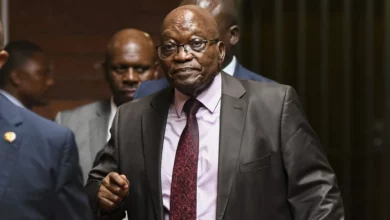The outcome of the International Criminal Court (ICC) Review Conference on the crime of aggression is further confirmation of the Court’s susceptibility to power politics. Powerful states (including the United States, which is not a party to the Rome Statute of the ICC) insisted that the UN Security Council be the primary trigger for ICC jurisdiction over this crime, knowing this would allow them to block certain cases from going forward. Government delegates left Kampala two weeks ago with an agreement to postpone the Court’s authority over the crime of aggression for another seven years and a definition of the crime that prevents strong enforcement powers once the Court has jurisdiction.
The crime of aggression is broadly defined as the use of armed force by one state against another in contravention of the UN Charter. However, unlike other crimes enshrined in the Rome Statute–war crimes, genocide and crimes against humanity–the agreement in Kampala gives states that are “parties” to (or members of) the Court an opt-out clause on aggression. Member states can simply declare to the ICC that they do not accept its jurisdiction over this particular crime. The Court has no jurisdiction over acts of aggression committed on the territory or by the nationals of non-member states. Thus the UN Security Council–dominated by the political interests of the permanent five members–offers the only possibility for determining and dealing with acts of aggression by non-members or by non-consenting members.
The agreement in Kampala therefore raises further questions about whether the Court will ever be truly universal in its ability to protect people from the worst forms of abuse. The ICC, like any international mechanism intended to promote human rights, faces the impossible task of acting morally in a political world characterized by power inequalities, domination and violence. Because the Court lacks an independent enforcement capacity, it must often accommodate itself to political power instead of challenging it.
This is evident at both the local and global levels. At the local level, the ICC depends upon states to assist in investigations and prosecutions. In the Uganda case, for example, the ICC has enjoyed a close working relationship with Ugandan political and military authorities. The Ugandan military–itself responsible for horrific crimes against its own people as well as against Congolese civilians during its invasions of the Democratic Republic of the Congo in 1996 and 1998–has accompanied ICC investigators on their interviews with victims and witnesses. In exchange for this cooperation, the ICC appears to have left the prosecution of government crimes to the government itself.
This accommodation to Ugandan government interests does not make sense to many people in northern Uganda. Why, they ask, should the ICC not hold the government equally accountable for war crimes, including the long-term forced displacement of over a million people and their internment in squalid camps? They do not share the ICC’s faith in the government to impartially prosecute itself, and see this as a clear example of double standards, whereby international mechanisms are used only to deal with declared enemies of the state. That victims were asked to play in a football match on team “Dignity”, led by President Museveni as a curtain raiser to the conference, reflects an utter lack of sensitivity to victims of Ugandan government crimes.
At the global level, in an effort to boost its enforcement capabilities, the Court is flirting with a government that not only refuses to abide by international law but that itself has been accused of aggression: the United States. The ICC’s appeals to the US to assist in apprehending suspects is taking place as the Obama administration has declared its interest in working more closely with the Court–not with the intent of becoming a party to the Rome Statute, but to help execute arrest warrants. An alliance between the US and the ICC that fails to demand US ratification of the ICC treaty is a perfect example of the Court accommodating itself to political power and risks providing justification for the direct use of US military force under the guise of capturing war criminals.
The sad reality is that the world’s worst crimes will go unpunished when committed by powerful actors like the US. The agreement reached at the ICC Review Conference further entrenches this politicized impunity. Victims of less spectacular but equally deadly forms of violence and repression–such as economic exploitation, external sponsorship of violent states and political forces, internationally-enforced disparities in access to medicines, trade regimes that undermine food sovereignty and security, violence against women that takes place during so-called peacetime–will remain in the shadows of global justice. Those demanding accountability for the strangulation of Gaza, for the US invasions and occupations of Iraq and Afghanistan, for the dumping of toxic waste and theft of resources from Somali waters, for BP’s negligence and “earthicide” in the US Gulf Coast, for the assassination of civilians by private companies like Blackwater, are demanding justice from the world’s most powerful players despite having few resources and forms of support.
Ideally, the ICC could assist these struggles, but instead it will remain subject to global politics. While providing some repair for select victims, the Court will remain unable to address vast forms of injustice throughout the world.
Samar Al-Bulushi is an independent researcher examining the influence of external actors on peace and justice debates in Africa. Adam Branch is assistant professor in the Department of Political Science at San Diego State University.




